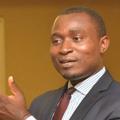Bringing Valuable Regional Perspectives to the global Debate on Climate Change Evaluation
I spoke to the President of the Cameroon Development Evaluation Association, Debazou Yantio upon my arrival here in Yaoundé for the 2014 African Evaluation Association (AfrEA) conference.
Debazou who has a long experience of evaluating environmental and climate change interventions in the region said "for most NGOs operating in the region, there is a culture of just attributing success to their intervention without clear and systematic evaluative evidence."
While this might sound hilarious, it speaks to the challenges ahead not only for evaluating the growing portfolio of climate change projects in Africa but also for institutionalizing evaluation in general. In Central Africa (Cameroon, Gabon, Central African Republic, Congo, Democratic Republic of Congo, Equotorial Guinea and Chad), Debazou said, the evaluative function is still not fully developed. Most organizations, he said are actively monitoring project cycles from which they derive data to carry out required changes to improve interventions. But with respect to systematic evaluation, he said, much work needs to be done including evaluation of climate change and environmental projects, programs, interventions and policies in Central Africa.
But Debazou was however quick to recognize the significant progress that has been made in other regions of Africa not only with the institutionalization of the results culture but also with the active and systematic evaluation of interventions by independent bodies using credible methods. In South Africa for example, he cited the creation of an evaluation function housed within the Presidency and in Benin Republic in West Africa where there is a whole ministry in charge of evaluation.
The AfrEA conference which opens Monday, March 03, 2014 in Yaoundé, capital of Cameroon offers an opportunity for evaluation and development stakeholders both from within and without Africa to listen, learn and further enrich ongoing conversations on development evaluation and climate change evaluation to be more specific.
The climate change evaluation sessions shall benefit from original and fresh perspectives of evaluators and practitioners on the ground. Expected at next Thursday morning?s session on evaluating climate change adaptation is Diop Ndeye Fatou from Senegal who will present a paper on the evaluation of the Great Green Wall. This session shall also include presentations from different practitioners including one on evaluating climate change vulnerabilities and resilience in the Sahelien region of Cameroon.
In addition, there shall also be an Asian perspective to further enrich the discussions with Umi Hanick from Indonesia presenting on "Towards the Utilization of National Climate Change Monitoring & Evaluation for Evidence-Based Negotiations and Policy Making Advisory: Lessons Learnt from Indonesia.?
In setting up these sessions, the overall goal of the Global Environment Facility Independent Evaluation Office (GEF IEO) acting as manager of the environment and climate change strand at the AfrEA conference was to ensure that there is space for cross fertilization of ideas and experiences between climate change and natural resources management evaluators operating in the African region with those from different parts of the world.
For a full program of the climate change and environment session of the conference, click here:
Throughout this week, we shall regularly update you on these sessions with a special focus on regional perspectives. We shall interview practitioners in the region and share their methodological innovations and challenges with you.



